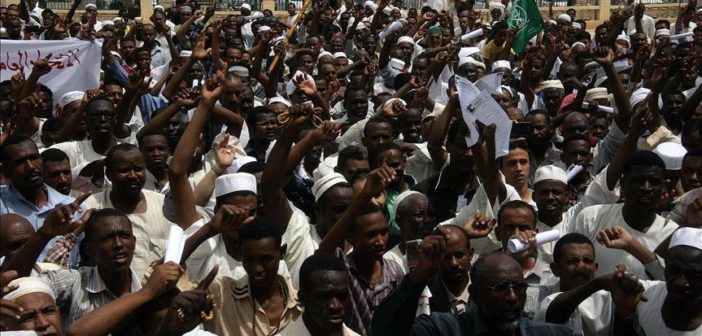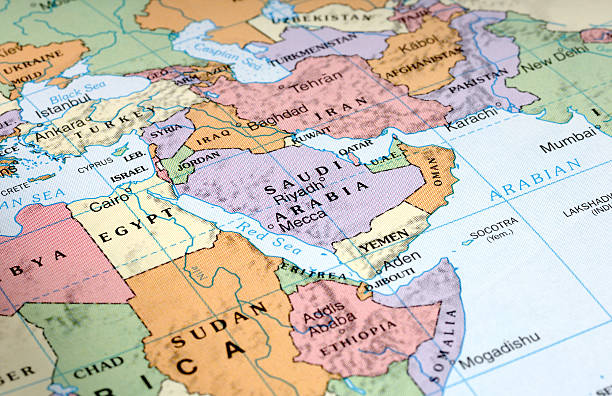
In February, tens of thousands of Algerians took to the streets demanding an end to President Abdelaziz Bouteflika’s two decades-long rule. On April 3, he had to resign. To put it more accurately, he was removed from power. Whether he was actually in power or had become just a figurehead can be disputed. Mr Bouteflika is no ordinary politician. He first distinguished himself during Algeria’s War of Liberation. In 1963 he became foreign minister at the age of 26, a post he held until 1979. With him at the helm of Algeria diplomacy, the country became one of the leaders of the Non-Aligned Movement. In 1974 he was elected President of the twenty-ninth session of the UN General Assembly. In brief, President Bouteflika enjoyed a remarkable political career. And, his country rewarded him by electing him as president in 1999, 2004, 2009 elections. He had a stroke in 2013 but ran for a fourth term the next year and won despite alleged election irregularities. It seems that his seeking a fifth term became the straw that broke the camel’s back. Thus, instead of going in the annals of history as a respected elder statesman, he will be remembered as politician ousted by popular uprising.
Yesterday, Sudan’s military responding to people’s protests ousted President Omar al-Bashir. He had been in power for nearly three decades after staging a coup in 1989. He was the first sitting head of state honored with an arrest warrant issued by the International Criminal Court. That was in 2009. Omar al-Bashir, nonetheless, won consecutive elections in 2010 and 2015 marred by irregularities and opposition boycott. At the end of 2018, the Sudanese hit by years of economic hardship took to the streets. Demonstrators initially called for economic reform but then started demanding the removal of the President.
Insatiable appetite for power, for perpetual power to put it more correctly and aversion to power sharing, is a disease of Middle East politics.
Zine al-Abidine Ben Ali ruled Tunisia for 23 years before stepping down in January 2011 amid an unprecedented wave of street protests.
Hosni Mubarak ruled Egypt for almost 30 years until he was swept from power in February 2011.
Muammar al-Qaddafi ruled Libya for more than 40 years and suffered a tragic death.
Young Algerians are the driving force behind the recent protests. In this country of 43.5 million, the median age is just above 28.
Sudan has a population of 37 million and the median age is barely 20.
The question now is where Algeria and Sudan would go from here.
Looking at Algeria, one needs to remember that the Algerian Civil War was an armed conflict between the Algerian army and various Islamist groups, some of them violent extremists. It started in 1991 and lasted more than a decade. It is estimated to have cost between 150,000 and 200,000 lives.
Whatever the façade, the army is still in power and those groups are still there. People’s protests which forced the ouster of President Bouteflika were peaceful. But what if they continue protesting against the establishment? What if extremists again take the stage?
As for Sudan, International Crisis Group’s Africa Briefing “Improving Prospects for a Peaceful Transition in Sudan” of January 14, 2019 (*), referring to Mr. al-Bashir, concluded with the following:
“… At some point, his departure appears inevitable. Outside powers should do everything possible to prevent violence in the meantime, work for as smooth a transition as possible and find him an exit.
“Qatar, Turkey, Saudi Arabia and the United Arab Emirates, all of whom have good access to key decision makers in Khartoum, should counsel the regime to avoid further bloodshed and to set the stage for credible dialogue with the opposition and the various leaders of the protest movement so all sides can agree on a way to end the stalemate. They should urge Bashir to suspend the state of emergency to pave way for such talks. They should also emphasize to Bashir and his inner circle that speed is of the essence. The longer the crisis persists, the more likely a dangerous descent into chaos.”
It appears that Crisis Group’s call was either unheeded by these four countries with good access to Khartoum or they simply failed to make an impact on Omar al-Bashir. After all, these four countries are in conflict among themselves.
With Al-Bashir gone, Sudan’s military leadership needs to take minimum political and economic steps to calm the protesters and offer a prospect for change. But again, what if the protestors remain on the streets and turn against the establishment?
In both cases, the responsibility to chart a peaceful future lies with the military.
It has been almost two decades since Tunisian street vendor Mohammed Bouazizi set himself on fire to protest the seizing of his vegetable stand by the police. In the absence of democratic experience, at least democratically inclined if not democratic state institutions, the Arab spring has made little headway. Even ensuring internal peace remains a challenge. The big earthquake has not hit the dynasties but they feel unsafe because they know that the region’s tectonic plates are moving, causing stress on the edges.
Could an enlightened leader make a difference? Perhaps, but there is no one in sight who can inspire national unity as opposed to internal conflict, peaceful transition towards democracy as opposed to authoritarianism, rule of law as opposed to rule of thumb and progress as opposed to lethargy. And sadly, those in power are essentially trying to ensure their own survival against new tremors rather than upgrading their countries’ building standards.
…………………………………………………………………………
Ali Tuygan, Ambassador (Ret’d) and former Undersecretary of the Turkish Foreign Ministry. The article is also published on his blog.









